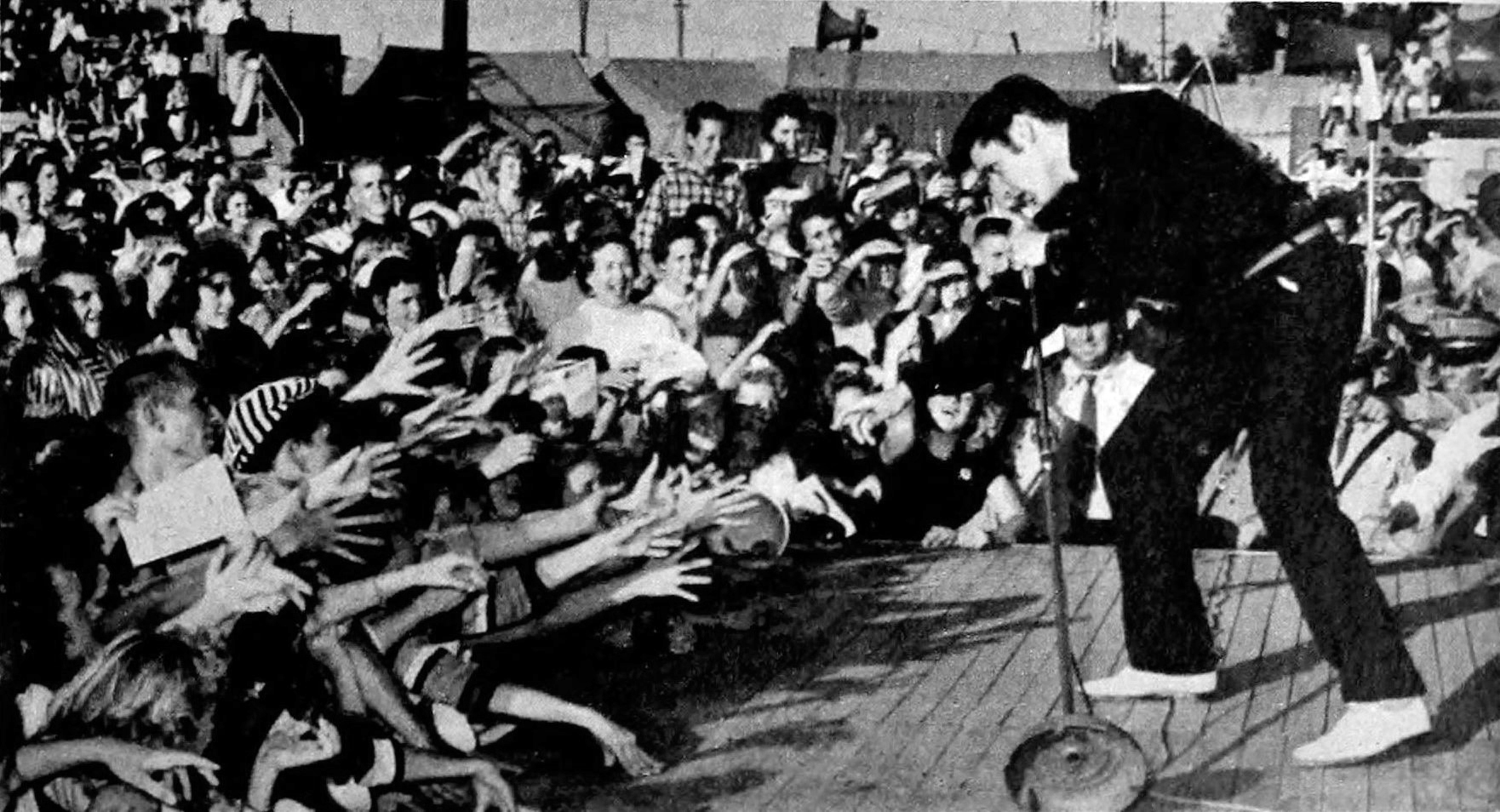Elvis Presley, often hailed as the “King of Rock and Roll,” remains one of the most iconic and influential figures in the history of music. Born on January 8, 1935, in Tupelo, Mississippi, Presley’s unique blend of country music with rhythm and blues catapulted him to stardom in the 1950s and revolutionized the music industry. His charismatic stage presence, distinctive voice, and pioneering spirit made him a cultural icon whose impact resonates to this day.
Early Life and Musical Beginnings: Elvis Aaron Presley grew up in a modest household in Tupelo, where he was deeply influenced by the gospel music he heard in church and the country and blues music of the Mississippi Delta. In 1948, his family moved to Memphis, Tennessee, a melting pot of musical genres, where Presley’s musical interests expanded.
Rise to Fame: Presley’s music career took off in 1954 when he walked into Sun Records and recorded “That’s All Right,” a song that would become his first single. His blending of various musical styles was innovative, appealing to a broad audience and breaking racial barriers in a segregated America. Presley quickly became a sensation, with hits like “Heartbreak Hotel,” “Hound Dog,” and “Jailhouse Rock” dominating the charts.
Impact on Music and Culture: Elvis Presley was more than just a musician; he was a phenomenon that transformed the entertainment landscape. He introduced a new era of American music and culture, characterized by his energetic performances and sexual charisma, which both shocked and thrilled the nation. Presley’s influence extended beyond music to movies, where he starred in 31 films, further cementing his status as a cultural icon.
Challenges and Comeback: Despite his monumental success, Presley faced personal and professional challenges, including struggles with drug addiction and the pressures of fame. In 1968, he made a triumphant return to the stage with the “Elvis Comeback Special,” reasserting his relevance in the music world and paving the way for his Las Vegas residency, where he delivered some of the most memorable performances of his career.
Legacy and Death: Elvis Presley passed away on August 16, 1977, at his Graceland home in Memphis, at the age of 42. His death marked the end of an era but not the end of his influence. Presley’s music continues to inspire artists across genres, and his impact on culture and music remains unparalleled. Graceland has become a pilgrimage site for fans, and his recordings continue to sell in the millions, testament to the timeless appeal of his artistry.
Elvis Presley’s legacy is a testament to his extraordinary talent, charisma, and the revolutionary impact he had on music and culture. The “King of Rock and Roll” left an indelible mark on the world, and his contributions to music will forever be celebrated. Through his recordings, films, and the memories he created for millions of fans around the globe, Elvis Presley’s spirit lives on, ensuring that his title as the King remains undisputed.
Elvis Presley’s story is a rags-to-riches tale of a boy from Tupelo who became a global superstar. His journey from the humble beginnings to the zenith of fame is a source of inspiration and a reminder of the transformative power of music. Elvis may have left the building, but the King of Rock and Roll will never leave the hearts of those who love him.


